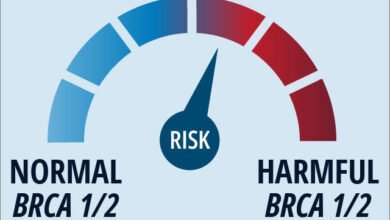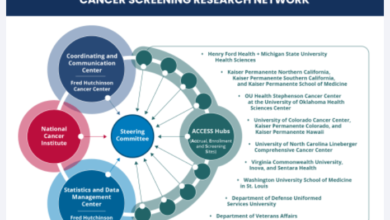Cancer Research UK – Science blog

Michelle Mitchell, chief executive of Cancer Research UK Michelle Mitchell, chief executive of Cancer Research UK
Saturday was World Cancer Day, for which the theme was ‘closing the gap in cancer care’ – a topic that is sadly, only too relevant to the UK. The 2022 parliamentary inquiry into cancer care has shown that England (and the UK as whole) continues to lag behind comparable nations in terms of cancer outcomes.
Government targets on cancer have been missed for years – well before the Covid pandemic. As of November 2022 – only 61% of patients in England started treatment within 62 days of an urgent suspected cancer referral. The government target of 85% has not been met since 2015.
And around 12.4% of cancer patients in England (about 2000 people) waited more than 104 days after an urgent referral to begin treatment. This of course has a negative impact on rates of survival. It has a human impact too – with more people suffering from stress and anxiety about when they’ll be treated.
Until recently, the government was committed to publishing a 10-year cancer plan in response to this crisis and had consulted with a wide range of stakeholder groups including expert oncologists and charities like Cancer Research UK. We were hopeful that the problem might be gripped once and for all.
This plan, however, has been quietly dropped by the new administration, in favour of a 5-year ‘major conditions strategy’ which will combine their intended approach to cancer, alongside other issues such as stroke, diabetes, mental health and dementia.
Getting this strategy right will be critical to ensure cancer isn’t ignored at the expense of other problems facing the NHS, such as the huge pressures on A&E and the significant backlog for elective surgery.
The strategy will need to address the persistent failure to hit cancer targets – with clear metrics for progress and success, with clarity on who is accountable for delivery and performance, and ideally independent oversight of that performance.
It will need to ensure the NHS rolls out better ways of diagnosing more cancers early and increases its capacity to get patients diagnosed and treated more quickly. It will need to drive action on preventing cancer in the first place – ensuring government reaches its targets on problems such as smoking and obesity.
The concern, however, and the concern of many others working in cancer research and care, is that by bundling in cancer alongside other conditions via a short-term strategy – ministers will fail to give cancer the due care and attention it requires.
Cancer isn’t a single disease, it’s an umbrella term for hundreds of diseases, all of which mutate and change over time and every patient is unique. This makes treating cancer extremely complicated – in medicine it’s one of the hardest problems to solve and scientific discovery takes time.
Ultimately, beating cancer requires a long-term approach. Research by Cancer Research UK has shown that the number of people in the UK diagnosed with cancer will rise by a third by 2040, taking the number of new cases every year to over half a million for the first time.
We need to get ahead of this problem – with a long-term cancer plan that will increase capacity across community-based sites and within hospitals. It takes 15 years to train an oncologist, pathologist, radiologist or surgeon, and international comparisons show that the countries with the biggest improvements in cancer survival, like Denmark, are those with long-term, adequately funded cancer plans.
The devolved assemblies have recognised this – Wales and Northern Ireland have their own cancer strategies, and Scotland is due to publish theirs shortly, leaving England as an outlier. Given we’re already lagging towards the bottom of the league tables, I fear that moving away from the 10-year plan, risks England (and the UK more widely) slipping further behind.
1 in 2 people will get cancer in their lifetime and it will affect every family across the UK. People affected by cancer feel frustrated, upset and let down. I urge government to commit to taking action for everyone affected by cancer today, tomorrow and in the future. And do so now.
Michelle Mitchell is chief executive officer of Cancer Research UK
Source link
#Cancer #Research #Science #blog



